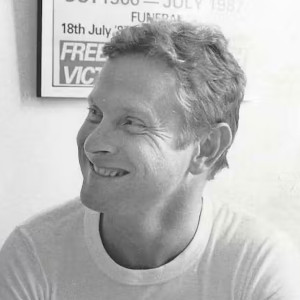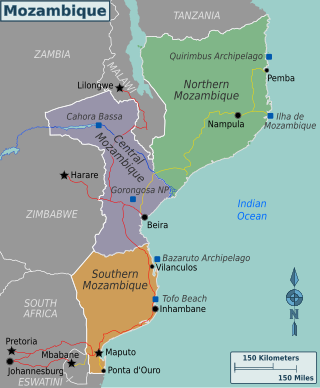
Khayelitsha is a township in Western Cape, South Africa, on the Cape Flats in the City of Cape Town Metropolitan Municipality. The name is Xhosa for New Home. It is reputed to be one of the largest and fastest-growing townships in South Africa.

AIDS Healthcare Foundation (AHF) is a Los Angeles-based 501(c)(3) nonprofit organization that provides HIV/AIDS prevention, treatment, and advocacy services. As of 2024, AHF operates about 400 clinics, 69 outpatient healthcare centers, 62 pharmacies, and 22 Out of the Closet thrift stores across 15 U.S. states, Washington, D.C., Puerto Rico, and 46 countries, with over 5,000 employees, and provides care to more than two million patients. The organization's aim is to end the AIDS epidemic by ensuring access to quality healthcare, including HIV and STD testing, prescription of medications like Pre-exposure Prophylaxis (PrEP), and referrals to specialty pharmacies. AHF is the largest provider of PrEP in the United States, though its founder Michael Weinstein has received criticism for his past opposition to the drug.

HIV/AIDS in India is an epidemic. The National AIDS Control Organisation (NACO) estimated that 3.14 million people lived with HIV/AIDS in India in 2023. Despite being home to the world's third-largest population of persons with HIV/AIDS, the AIDS prevalence rate in India is lower than that of many other countries. In 2016, India's AIDS prevalence rate stood at approximately 0.30%—the 80th highest in the world. Treatment of HIV/AIDS is via a combination of antiretroviral drugs and education programs to help people avoid infection.
Howard Brown Health is a nonprofit LGBTQ healthcare and social services provider that was founded in 1974. It is based in Chicago and was named after Howard Junior Brown.

Whitman-Walker Health (WWH), formerly Whitman-Walker Clinic, is a non-profit community health center in the Washington, D.C. metropolitan area with a special expertise in HIV/AIDS healthcare and LGBT healthcare. Chartered as an affirming health center for the gay and lesbian community in 1978, Whitman-Walker was one of the first responders to the HIV/AIDS epidemic in D.C. and became a leader in HIV/AIDS education, prevention, diagnosis and treatment. In recent years, Whitman-Walker has expanded its services to include primary healthcare services, a stronger focus on queer women's care and youth services.

Tropical diseases, especially malaria and tuberculosis, have long been a public health problem in Kenya. In recent years, infection with the human immunodeficiency virus (HIV), which causes acquired immune deficiency syndrome (AIDS), also has become a severe problem. Estimates of the incidence of infection differ widely.

Ivan Peter Toms was a South African physician, who battled the Apartheid era government as a prominent anti-Apartheid and anti-conscription activist. He opposed conscription by the South African Defence Force, and was a co-founder of the End Conscription Campaign. He ran a clinic in the Crossroads shanty town where he was the only physician for 60,000 people. He went on a hunger strike in 1985 after the government decided to bulldoze the settlement. Toms was also involved with gay rights activism in South Africa and was a founding member of the Lesbians and Gays Against Oppression. At the time of his death in 2008, Toms was serving as the Director of Health for the city of Cape Town, South Africa.

HIV/AIDS in Lesotho constitutes a very serious threat to Basotho and to Lesotho's economic development. Since its initial detection in 1986, HIV/AIDS has spread at alarming rates in Lesotho. In 2000, King Letsie III declared HIV/AIDS a natural disaster. According to the Joint United Nations Programme on HIV/AIDS (UNAIDS) in 2016, Lesotho's adult prevalence rate of 25% is the second highest in the world, following Eswatini.
HIV/AIDS in Eswatini was first reported in 1986 but has since reached epidemic proportions. As of 2016, Eswatini had the highest prevalence of HIV among adults aged 15 to 49 in the world (27.2%).

Mozambique is a country particularly hard-hit by the HIV/AIDS epidemic. According to 2008 UNAIDS estimates, this southeast African nation has the 8th highest HIV rate in the world. With 1,600,000 Mozambicans living with HIV, 990,000 of which are women and children, Mozambique's government realizes that much work must be done to eradicate this infectious disease. To reduce HIV/AIDS within the country, Mozambique has partnered with numerous global organizations to provide its citizens with augmented access to antiretroviral therapy and prevention techniques, such as condom use. A surge toward the treatment and prevention of HIV/AIDS in women and children has additionally aided in Mozambique's aim to fulfill its Millennium Development Goals (MDGs). Nevertheless, HIV/AIDS has made a drastic impact on Mozambique; individual risk behaviors are still greatly influenced by social norms, and much still needs to be done to address the epidemic and provide care and treatment to those in need.

Rwanda faces a generalized epidemic, with an HIV prevalence rate of 3.1 percent among adults ages 15 to 49. The prevalence rate has remained relatively stable, with an overall decline since the late 1990s, partly due to improved HIV surveillance methodology. In general, HIV prevalence is higher in urban areas than in rural areas, and women are at higher risk of HIV infection than men. Young women ages 15 to 24 are twice as likely to be infected with HIV as young men in the same age group. Populations at higher risk of HIV infection include people in prostitution and men attending clinics for sexually transmitted infections.
In South Africa, private and public health systems exist in parallel. The public system serves the vast majority of the population. Authority and service delivery are divided between the national Department of Health, provincial health departments, and municipal health departments.

In precolonial Ghana, infectious diseases were the main cause of morbidity and mortality. The modern history of health in Ghana was heavily influenced by international actors such as Christian missionaries, European colonists, the World Bank, and the International Monetary Fund. In addition, the democratic shift in Ghana spurred healthcare reforms in an attempt to address the presence of infectious and noncommunicable diseases eventually resulting in the formation of the National Health insurance Scheme in place today.
Botswana's healthcare system has been steadily improving and expanding its infrastructure to become more accessible. The country's position as an upper middle-income country has allowed them to make strides in universal healthcare access for much of Botswana's population. The majority of the Botswana's 2.3 million inhabitants now live within five kilometres of a healthcare facility. As a result, the infant mortality and maternal mortality rates have been on a steady decline. The country's improving healthcare infrastructure has also been reflected in an increase of the average life expectancy from birth, with nearly all births occurring in healthcare facilities.
The Naz Foundation (India) Trust is a non-governmental organisation (NGO) in that country that works on HIV/AIDS and sexual health. It is based in the Indian capital of New Delhi.
SHAWCO, the Students' Health and Welfare Centre's Organization, is a student-run NGO based at the University of Cape Town that seeks to improve the quality of life for individuals in developing communities within the Cape Metropolitan area.
The Academic Model Providing Access to Healthcare (AMPATH) is an academic medical partnership between leading North American academic health centers, primarily led by the Indiana University School of Medicine in Indianapolis, Indiana, and the Moi University School of Medicine based in Eldoret, Kenya. It is the first integrated healthcare model to be established in Africa, encompassing both medical treatment and pharmaceutical provisions. The program aims to deliver comprehensive HIV care services and is guided by a three-fold mission: providing care, conducting research, and offering training opportunities. Currently, AMPATH serves a population of 3.5 million individuals, operating over 60 clinics in urban and rural areas of Western Kenya.

Voluntary Health Services, popularly known as the VHS Hospital, is a multispecialty tertiary care referral hospital in the south Indian state of Tamil Nadu, reportedly serving the economically weaker sections of the society. It was founded in 1958 by Krishnaswami Srinivas Sanjivi, an Indian physician, social worker and a winner of Padma Shri and Padma Bhushan awards and is run by a charitable non governmental organization of the same name. The hospital is situated along Rajiv Gandhi Salai at Taramani, in Chennai.

The Catholic Medical Mission Board (CMMB) is an international, faith-based NGO providing long-term, co-operative medical and development aid to communities affected by poverty and healthcare issues. It was established in 1912 and officially registered in 1928. CMMB is headquartered in New York City, USA and currently has country offices in Haiti, Kenya, Peru, South Sudan and Zambia.
Helen Joseph Hospital is a public hospital based in Auckland Park, Johannesburg, South Africa. Prior to 1997, it was known as the J.G. Strijdom Hospital. As a teaching hospital, its affiliated to the University of Witwatersrand's Medical School.












